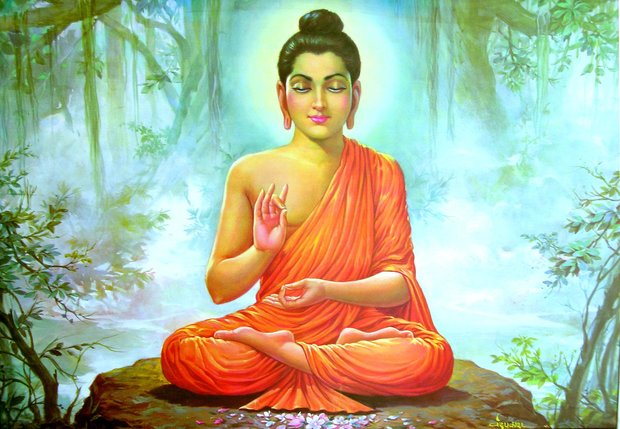The case of Phil Blackwood, Tun Thurein and Htut Ko Ko Lwin has highlighted the issue of blasphemy and Buddhism. The three were imprisoned for an image of the Buddha they allegedly produced, wearing headphones with a psychedelic ambience, which caused offence to some Buddhists.
In a previous article to DVB, I suggested the reasons that insensitive images of the Buddha might cause offence. The basic idea I put forward was that an image of the Buddha is in religious terms, much more than a simple depiction of the Buddha. These images have a meaning far beyond a simple representation. A Buddha has a very real power, through his ethical and meditative activity, and this power can help and protect his followers. Misuse of his image can cause very real offence.
The image of the Buddha and other Buddhist religious artefacts are more complex in the cultural and religious context than is often appreciated in the Western imagination. In that imagination, Buddhism is reduced to a simple set of principles and much of its sacredness is downplayed. In many ways the romantic idea of Buddhism, the sacredness, is completely removed and the form of Buddhism as used in the media and advertising is often unrecognisable from the way Buddhism is practiced in Asian societies.
As Prof. David I. Steinberg has suggested: “The Western schoolbook approach which views textual Buddhism as pacifistic, meditative and non-violent misses the dynamic of Buddhism in Myanmar as a socio-political force. It is as naïve as interpreting the history of Western Europe on the basis of the Sermon on the Mount.” [Myanmar’s militant monks smash stereotypes, East Asia Forum, 13 November, 2014]
Having suggested these ideas, there is very little in the Pali Canon which would justify any form of blasphemy, and certainly not punishment for producing images of the Buddha. In fact, the two famous passages that mention offence being made against Buddhism it is clearly argued that those practicing the path to awakening will not take offence at any perceived insult to Buddhism.
[related]
Before considering these two passages a brief explanation of ‘intention’ (cetana) might be helpful. As is well known, one of the key features of Indian religious teaching, which the Buddha adopted and clarified, was the notion that ‘actions have consequences’ (kamma/karma). In the Buddha’s discussion of ‘action’, he clearly stated that action is to be understood as ‘intentional action’. The notion of ‘intention’ is central to any Buddhist understanding of an action having a consequence. It is for this reason that many Buddhists are not vegetarian, namely, they did not intend depriving the animal of life. If, without intent, one kills a living being, there is no negative consequence to that action. The same argument can clearly be extended to describe any offence caused unintentionally. If the intention to cause an offence is absent then, clearly, on purely philosophical grounds, no blame should be levelled against those who have caused offence.
In several passages from the Pali Canon the Buddha is very clear. His condemnation is not aimed at those who cause offence, but at the negative and unwholesome states of mind of those who take offence. The message that is repeated throughout the Buddha’s teachings is that the Buddha’s teachings are concerned with the overcoming of suffering. A major obstacle to this is not external factors, in others praise or disparagement, but in controlling feelings of anger and resentment.
It is in this context that the case of Phil Blackwood, Tun Thurein and Htut Ko Ko Lwin is better appreciated. All three have clearly not had any unwholesome intentions to insult Buddhism. Further, all three have offered sincere apologies.
The attitude taken by the Buddha in the Pali Canon and the advice he offers is quite clear. If disparagement, negative comments and offence are aimed at Buddhism then the Buddhist should not allow negative and unwholesome states of mind to overwhelm them. The aim of the Buddhist path is to practice in such a way that one performs ethical activity, calms the mind, and cultivates wisdom and metta. Such behavior seems a much better Buddhist response than to act with offence and anger when none was intended.
Dr Paul Fuller has taught Religious Studies at Universities in Southeast Asia, the University of Sydney in Australia and at Bath Spa University in the UK. His research interests include early Indian Buddhist philosophy and the Buddhist ideas of Aung San Suu Kyi. His book, The Notion of Ditthi in Theravada Buddhism: The Point of View (RoutledgeCurzon Critical Studies in Buddhism, 2004) explores the textual basis of discrimination and attachment in the Pali Canon.
The views expressed in this article are the author’s and do not reflect DVB policy.
Read more about the case of Phil Blackwood, Tun Thurein and Htut Ko Ko Lwin



